The North Face Chilkat 400 II
The Chilkat 400 II has been discontinued. It was replaced by The North Face Chilkat V 400 Waterproof Boots.
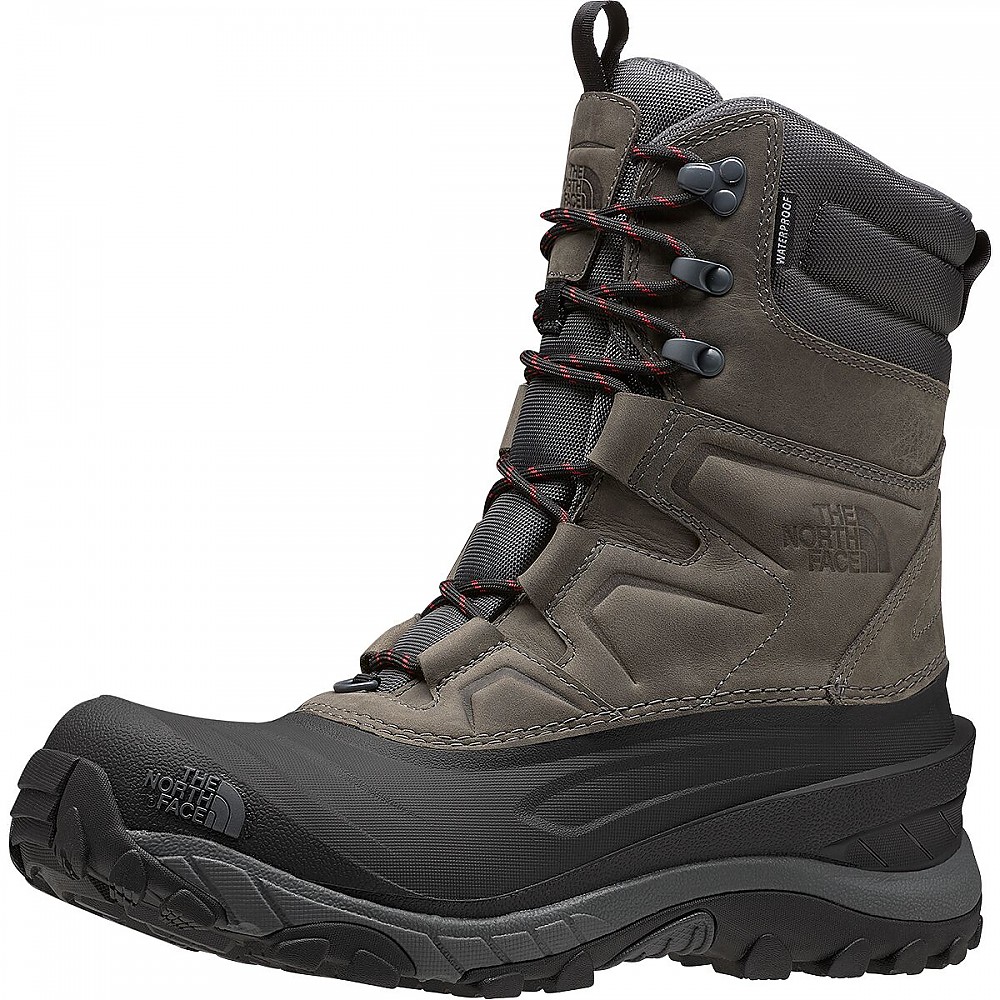
Warm winter pac boots (leather top, rubber bottom) with good treads. A few years of use and they've proved to be both warm and durable. Sizing can be an issue—mine initially felt too small, but see comments about how I addressed that.
Pros
- warm
- durable
- good traction
Cons
- thick insole affected sizing
JANUARY 2025 UPDATE:
Winter finally returned to the mid-Atlantic this year, so I've worn these boots a lot recently. With three years of use, they have proved to be durable. The coldest temperatures they've seen were single digits, and my feet felt great.
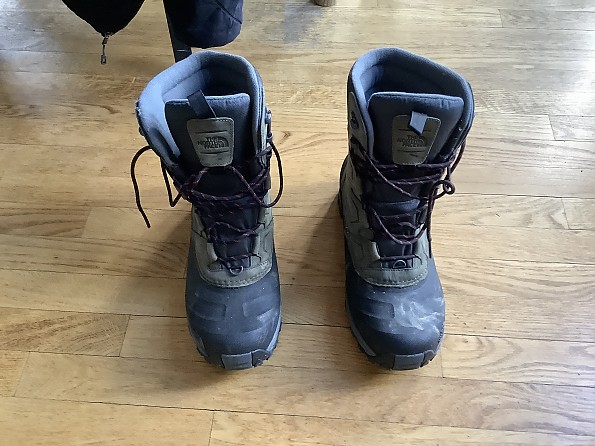
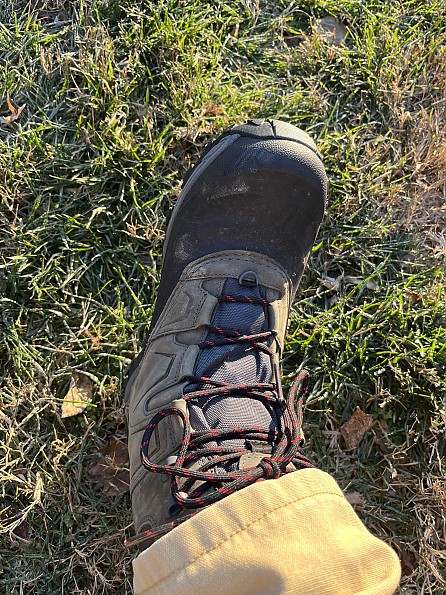
BASIC INFORMATION
The North Face Chilkats (the current model is called the Chilkat V 400, I believe) has been a good, sturdy, cold weather boot for me so far. They’re sold in men’s sizes 7-13 and women’s sizes 5-11. They have 400 gram synthetic insulation, they’re waterproof, 10 inches tall, and my pair of men’s size 12 weighs four pounds. The heel has a small "shelf" that would probably be helpful with snowshoe bindings. [it hasn’t snowed here since I got these, so no chance to wear them with snowshoes].
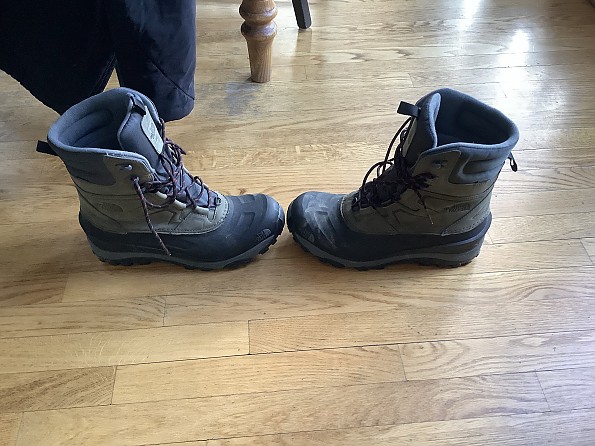
FIT
I have somewhat wide, flat feet, and size 12 works for me—they run roughly true to size. This is not a roomy boot like a Sorel; the fit is snug, meaning that while I have a little wiggling room for my toes, my heel and arch are anchored, making them better than most winter boots for walking around. It’s worth noting that when the boots arrived new, they had a fairly thick foam insole, and my initial reaction was that the boots weren’t the right size, felt too tight. Removing that thick insole and replacing it with something more like a normal running shoe insole created significant additional volume.
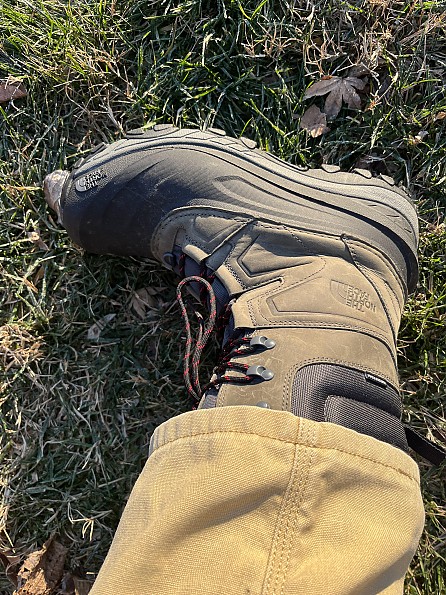
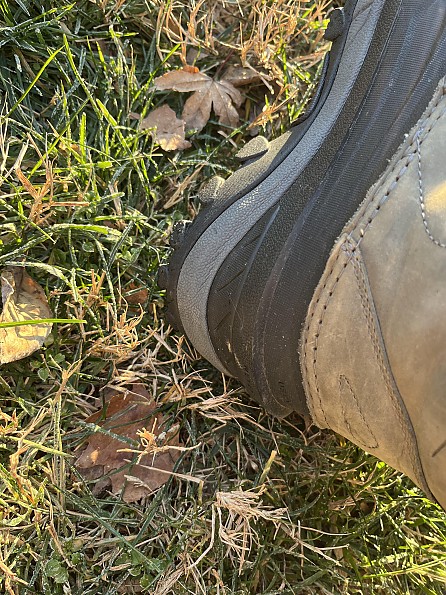
WARMTH
They’re pretty good, meaning that in ten-degree weather, standing still, my feet were slightly tingly in the toes until I moved around a little. They have kept my feet warmer than the Merrell winter boots they replaced. They are not as warm as bulkier boots like Baffins or Sorels with thick felt linings, and they’re not as warm as my winter mountaineering boots, which have high altitude liners.
TRACTION
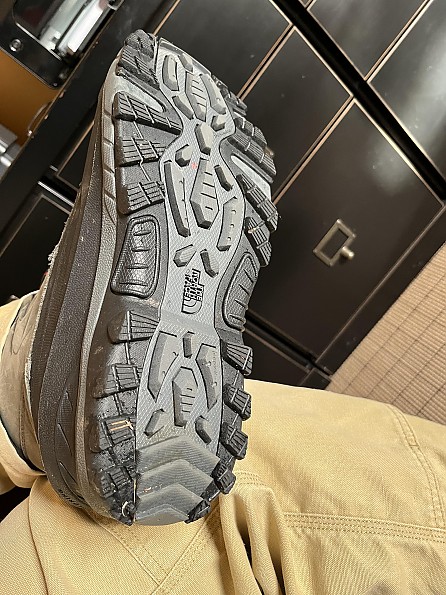
So far, the lugged soles have been great. They’re not the deepest lugs you will find. That said, they do a better job than most shedding frozen mud and have provided decent traction on rocks that are wet. Sadly, in a winter and a half, it hasn’t snowed in the DC area.
WILL YOUR FEET GET WET?
My feet have stayed dry throughout in these boots, though to be fair, they’re too warm to wear until the temperature is around freezing, and your foot is encased in rubber/vinyl, so water clearly isn’t getting in through that. I have worn them in cold rain on some miserable walks, and whatever The North Face is using for a waterproof/breathable membrane seems to work for the upper part of the boots. I haven’t yet treated the leather, but I’ll probably do that pretty soon.
These are not the tallest boots. If you anticipate stomping through reasonably deep puddles, a higher boot might be better.
ARE THEY DURABLE?
Nearly a year in, I have not had an issue with the durability of these boots. Hardware is all well-anchored, all the stress points on the leather are double-stitched, and the rubber bottom hasn’t had any issues. I have read reviews of past versions of this boot with photos of some pretty significant failures, most of which are models that were phased out or revised several years ago. No signs of any of that happening here.
HOW I HAVE USED THEM
I bought the Chilkats toward the latter half of last winter. They have been my go-to cold weather boot since then for walking the dog, walking around, and day-hiking in freezing weather. I tend to wear them with mid-weight merino wool socks and have used them on icy trails with a pair of Kahtoola microspikes. Planning on some time in New England end of February where I’m looking forward to a little snow, for a change.
JANUARY 2025 UPDATE: I've now worn these boots in winter conditions on multiple occasions, temperatures ranging from single digits to mid-20s. warmer than that, I'm in regular hiking boots. They've proved to be exactly what I expected and wanted. A really good, warm winter boot with a 'normal' fit, as opposed to the loose, washy fit I had with felt-lined Sorels. Also, the rubber lower foot section is sized and constructed such that I can pull on a pair of Microspikes, which I could not do with Sorels.
TAKEAWAYS
As a general use winter boot, these are better than anything I have worn in terms of the combination of walking comfort, warmth, and waterproofness. I would love to do some snowshoeing in these. There are warmer options if you consistently see frigid weather, and some people might want a taller boot.
Background
See above—purchased nearly a year ago, worn the end of last winter and in cold weather the last month or two. UPDATED 1/2025: Now 3-4 years of use, including in much colder temperatures.
Source: bought it new
Price Paid: $125 (on sale)
Your Review
Where to Buy
You May Like
Specs
| Price |
MSRP: $150.00 Historic Range: $83.77-$150.00 Reviewers Paid: $125.00 |
||
| Weight per pair |
3 lbs 6 oz. |
||
| Insulation |
400 g PrimaLoft Silver Insulation Eco |
||
| Comfort-rated |
down to -40°F |
||
| Shaft | height 7.75 in / 19.69 cm | circumference 10 in / 25.4 cm | |
| Last |
TNF-SB-01 |
||

